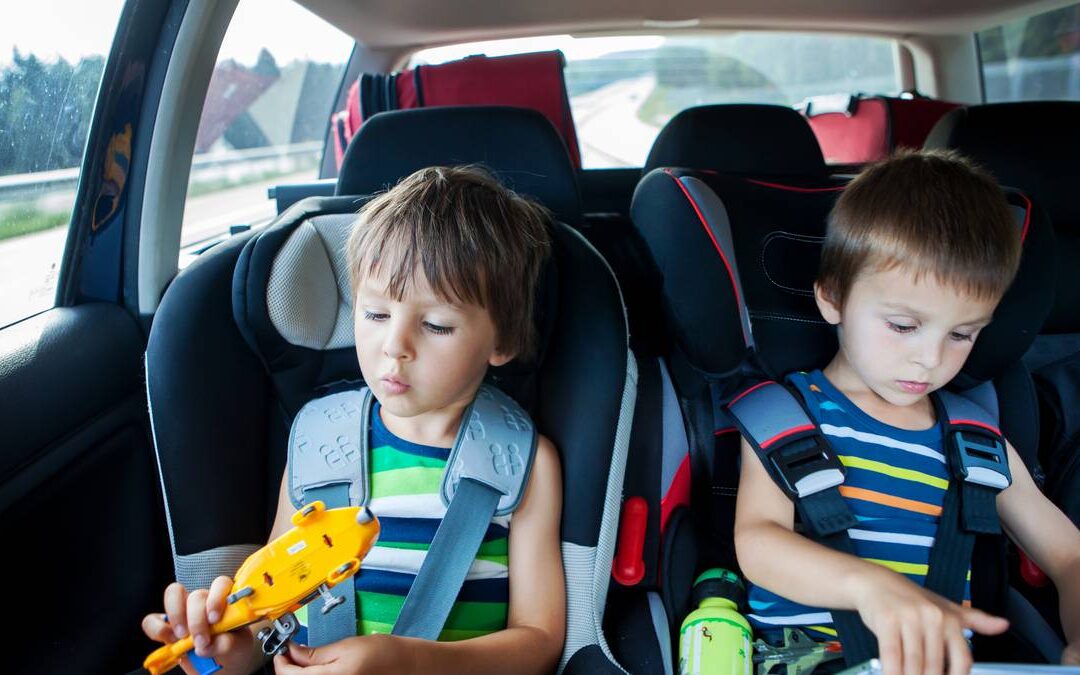[ad_1]
Electronic devices and traditional toys will help keep children entertained while travelling, but books are best avoided as reading can cause car sickness. Photo / 123rf
By Danielle Clent of RNZ
Getting away for a holiday after months of Covid-19 lockdowns is probably on the minds of many this summer.
But with little ones in tow, it can be hard to bite the bullet and take the trip.
RNZ spoke to parenting coach and educator Joseph Driessen to get his top tips for travelling over the Christmas holidays.
Advertisement
Whether travelling by car or plane, giving the kids a decent meal and rest beforehand was key.
Driessen said having your children well fed and well rested would make them more resilient and would help them tolerate travelling long distances better.
Entertainment
Having enough activities to keep children entertained would be a lifesaver while travelling, Driessen said.
Advertisement
If on a domestic flight, a book to read, colour in, or a device to play on would keep kids quiet and happy.
On overseas flights, Driessen said you would often see screens already available for everyone.
“They are really great,” he said. “Children can be completely absorbed.”
/cloudfront-ap-southeast-2.images.arcpublishing.com/nzme/5VB4YF6E45B3BMBGIVDV2BABJE.jfif)
By car, Driessen also recommended having devices available – but suggested books be kept tucked away for later in case of car sickness.
“Old-school” games such as I Spy were a great way to keep the kids happy and stop the boredom setting in, Driessen said.
Advertisement
Another old favourite was to count how many cars of a certain colour the kids could spot from their seats, he said.
Snacks
Snacks were an important part of travelling for anyone – but kids especially.
Boredom could result in many mentions of being hungry – so having a number of snacks on hand could keep kids busy.
Driessen said it was important to have healthy snacks on board – and avoid any foods that could contribute to car sickness.
Sugary drinks should be avoided, he said, as they could lead to children getting too “hyped up”.
Healthy snacks were the best potion to making children more resilient to the travelling, he said.
Advertisement
Breaks
If travelling by car, scheduling short breaks every so often could made a world of difference, Driessen said.
He said it was important parents realised some children just might not travel well, and breaks could make the trip better for them.
Even if just for five or 10 minutes, having the kids get out of the car, stretch their legs and take a short walk was a good thing to do, he said.
Breaks were also important to have if children were starting to aggravate each other in the back seat.
It was “no good” having parents and children yelling at each other and it could be very distracting for the driver.
Pulling the car over, and parents having a talk to the children to defuse a situation was the best thing to do, he said.
Advertisement
For people travelling a very long distance and if money allowed, Driessen said it was always a good idea to consider stopping at a motel for the night and continuing the journey the next morning.
Time of day
Driessen said the best time of day to travel was dependent on the individual family.
Some saw early mornings as the best time, while others saw night time as better.
This was because children could just sleep in the car, Driessen said.
If the driver didn’t have a problem with driving in the dark, Driessen considered driving through the night a good option as there would be less traffic on the roads and the destination could be reached quicker.
– RNZ
Advertisement
[ad_2]
Source link


Recent Comments